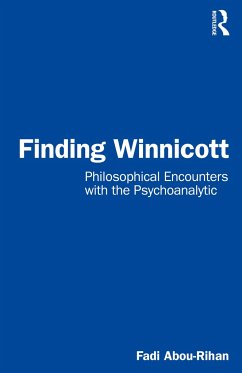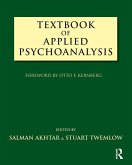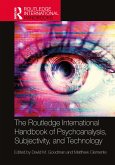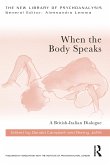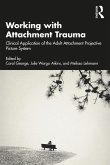In Finding Winnicott: Philosophical Encounters with the Psychoanalytic, Fadi Abou-Rihan expands upon Winnicott's category of the found object and argues that a genuine understanding of the analyst's own thought requires that it be considered in relation to that of another.
The essays in this collection are in dialogue with the work of Freud, Deleuze and Guattari, Laplanche, Bonaventure, Ibn Al-'Arabi, and Huizinga; these encounters showcase some of Winnicott's yet unexplored contributions to the questions of subjectivity, time, and language. They weave psychoanalytic theory, clinical vignette and key moments from the history of ideas in order to shed light on our findings regarding, and indeed findings of, desire, on some of the playful but no less compelling ways in which the subject lives, suffers, understands, questions and/or normalizes desire. Chapters span a range of topics including rationales, findings and spaces, and highlight the subject as not only that which finds but that which is found.
With clinical vignettes throughout, this book is vital reading for practicing analysts, as well as analysts in training and students of both philosophy and psychoanalysis.
The essays in this collection are in dialogue with the work of Freud, Deleuze and Guattari, Laplanche, Bonaventure, Ibn Al-'Arabi, and Huizinga; these encounters showcase some of Winnicott's yet unexplored contributions to the questions of subjectivity, time, and language. They weave psychoanalytic theory, clinical vignette and key moments from the history of ideas in order to shed light on our findings regarding, and indeed findings of, desire, on some of the playful but no less compelling ways in which the subject lives, suffers, understands, questions and/or normalizes desire. Chapters span a range of topics including rationales, findings and spaces, and highlight the subject as not only that which finds but that which is found.
With clinical vignettes throughout, this book is vital reading for practicing analysts, as well as analysts in training and students of both philosophy and psychoanalysis.
'Transitional space is where finding entwines subject and object in curious, unsettling ways. The evocative verbs finding, dreaming, playing and analysing are put through a Winnicottian lens, refracting the clinical alongside the philosophical as objects of play. As we pass through games, spaces and properties of thinking and being, the apparently simple-complexities of DWW inspire the reader as we re-view analytic theory. A page turner indeed.'
Dr Jonathan Sklar, Training Analyst, British Psychoanalytic Society, UK
Dr Jonathan Sklar, Training Analyst, British Psychoanalytic Society, UK

